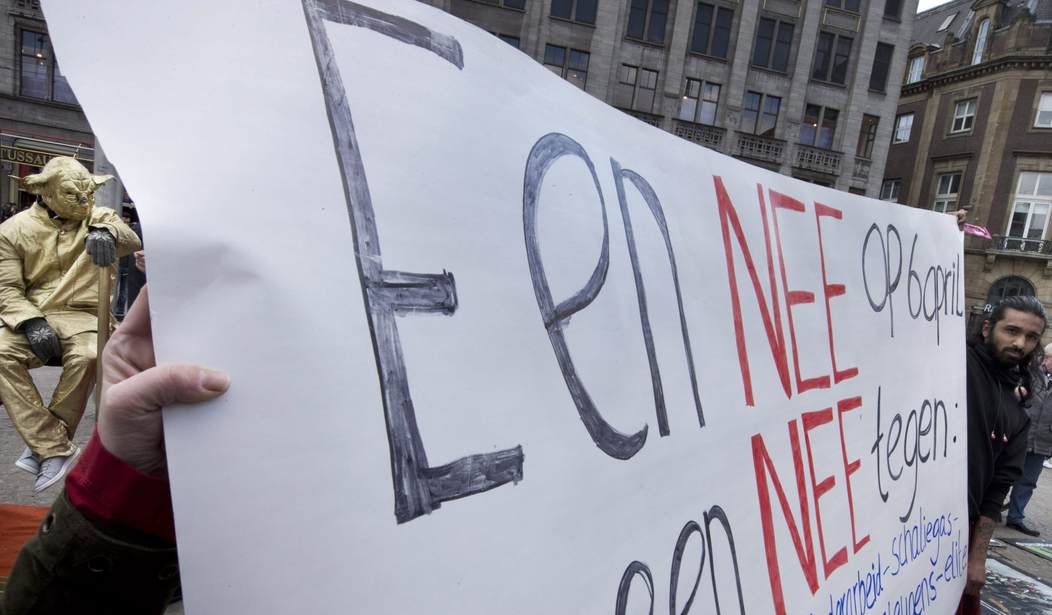Last week, my fellow Dutchmen voted against a Ukraine-EU treaty in the first ever grassroots-organized referendum. After proclaiming victory (61% voted against the treaty while only 39% voted in favor of it), the grassroots which organized it set its eyes on a new referendum: this time on the trade agreement between the European Union and the United States, also known as TTIP.
On the website of the organizers a tally shows that, so far, 105,000 voters have signed the petition calling for a referendum. The minimum amount required? 300,000 signatures. If 300,000 voters support a referendum, the government has to organize it.
From the looks of it, this target will be easily met. After all, the TTIP isn’t actually in place yet. American and European officials are still working on it, frantically even, because they fear that the next American president may withdraw from it if the deal isn’t signed beforehand.
Once the deal is signed, interest in it will peak, making it not just possible, but highly likely that the organizers of the referendum will get to 300,000 signatures in no time.
And that’s a major problem for both Brussels and Washington. As Euractiv explains:
Potential successors such as Republican frontrunner Donald Trump and Democrat Bernie Sanders have serious reservations about Free Trade Agreements such as TTIP.
But even if a deal is struck after four years of tough talks, the treaty must be ratified by the European Parliament, and each of the parliaments of the 28 member states of the EU, to finally come into force.
Yet at that point a Dutch referendum, even if like the one on Ukraine it is ‘consultative’ and non-binding, could heap huge pressure on Dutch MPs to ultimately quash the pact.
Both referendums — the one about the treaty between the EU and the Ukraine, and TTIP — are so important because they tie into the British referendum that will be held on June 23. The British people will then vote on the question of whether they want to remain part of the EU or once again become completely independent. This is also referred to as a Brexit. If British voters share the Dutch distaste for the ever power-hungry EU, a Brexit is more than likely. And that could cause a domino effect in the rest of the EU, with the Dutch possibly forcing a vote on the same matter.
It goes to show that anti-EU sentiment is on the rise in Europe, not only in the Netherlands, but also in Britain, where the Leave campaign is doing very well indeed. This eurosceptic feeling will be increased by the recent Dutch referendum and by the attempt to organize a new one, this time about the TTIP.
If I were a europhile, I’d start worrying.









Join the conversation as a VIP Member